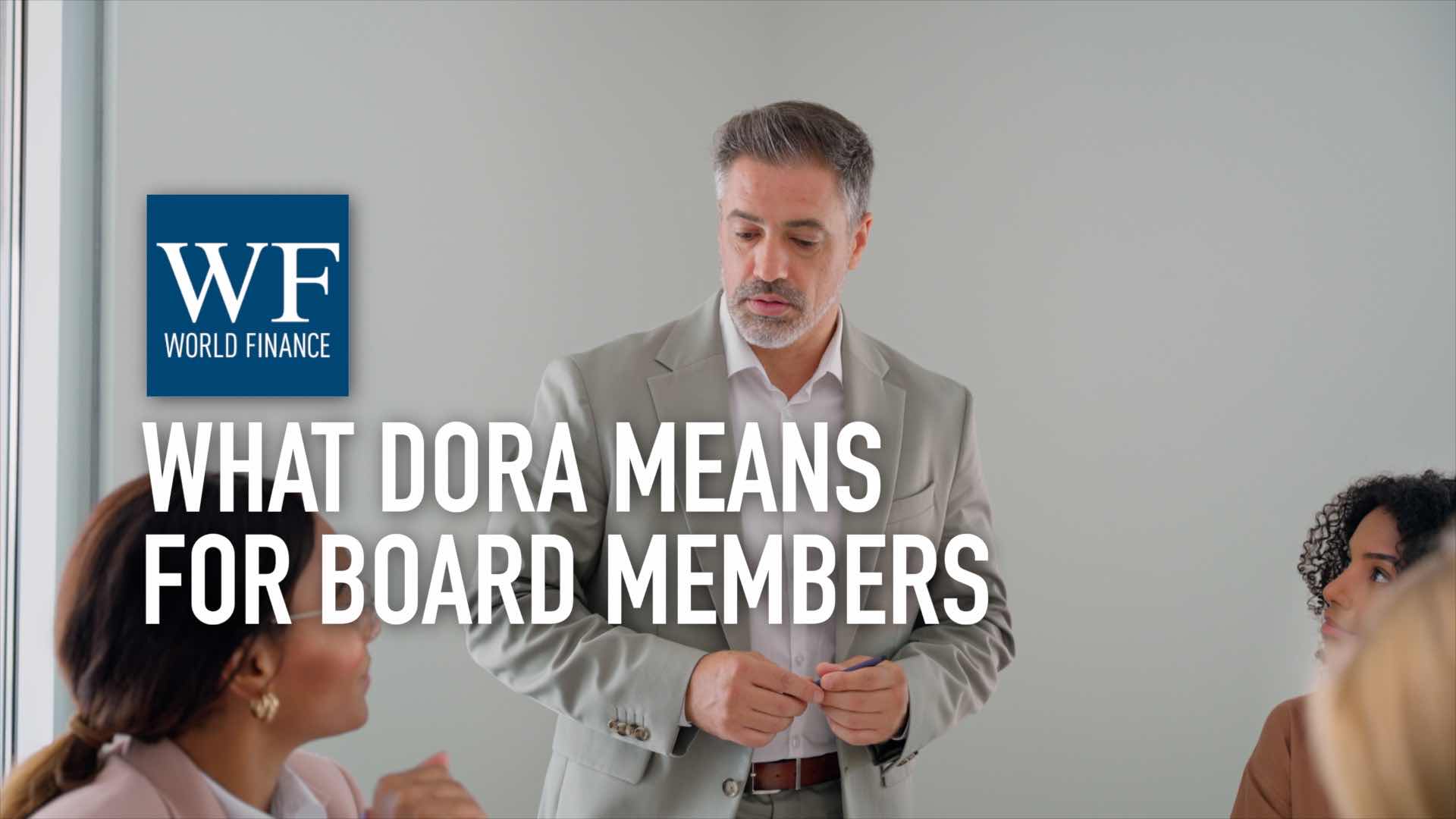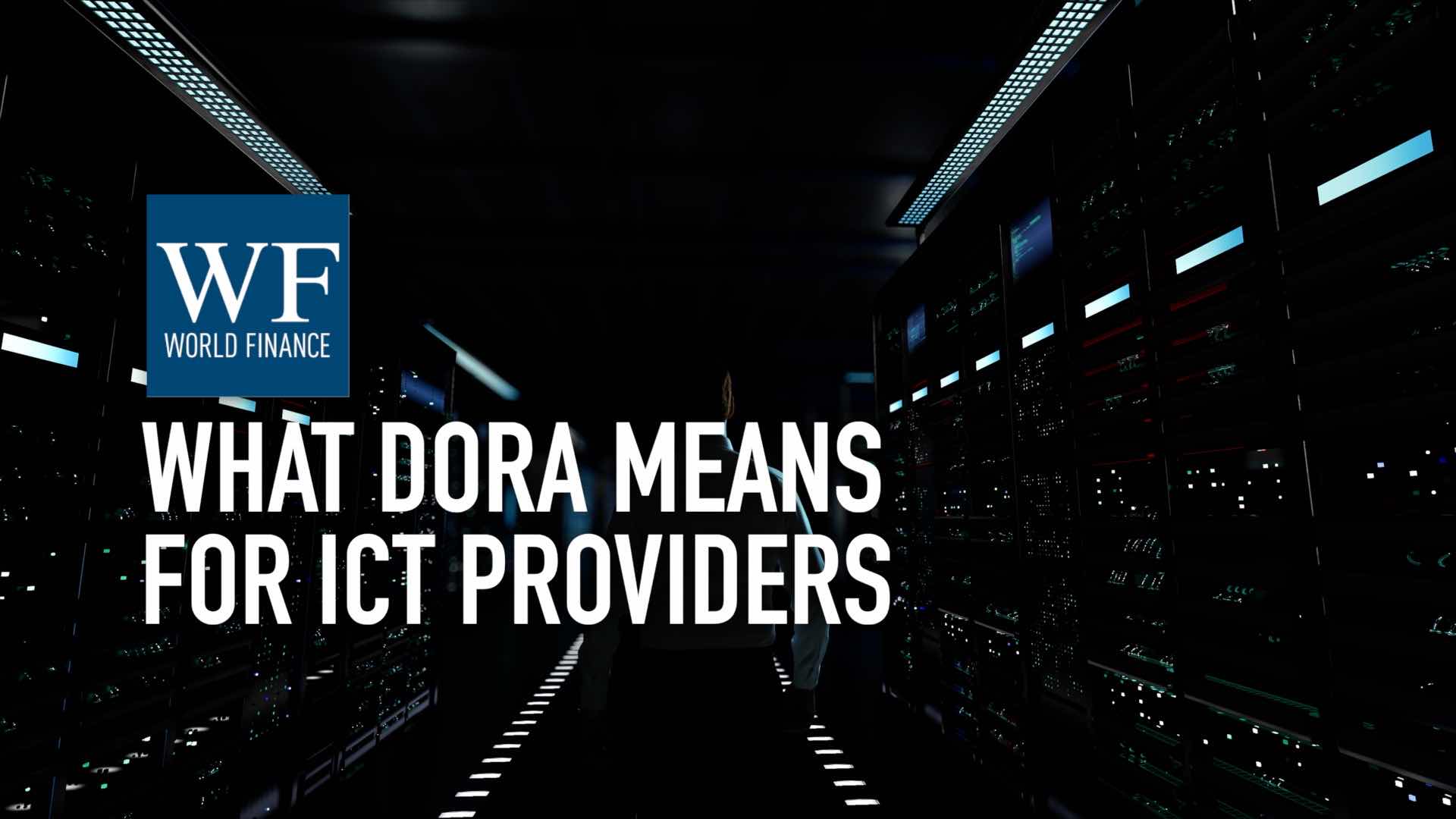Shehu Dikko and Mohammed Audu | Deanshanger Project Limited | Video
World Finance interviews Shehu Dikko and Mohammed Audu, CEO and COO of Deanshanger Project Limited, on the challenges involved with PPP projects in Nigeria
Related:
Transcript
Deanshanger Project Limited is comprised of three companies that focus on all aspects of project development, finance, and investment. Its CEO Shehu Dikko, and COO Mohammed Audu, discuss some of the challenges and risks involved in infrastructure development in Nigeria.
World Finance: Shehu, first tell us about Deanshanger and what you offer your clients?
Shehu Dikko: Basically we are a project development, finance, investment, and management company, with core interests in the areas of social development, real estate, energy, agriculture, and PP projects.
At the moment we have quite a number of projects in place in the footfall of the company. What we bring to the table basically is the expertise and the diverse experience of the group, there from the Deanshanger Limited. We are coming from a diverse group from the finance world, from the project management side, from the inter-relations side, and we come together. And so, we bring a diverse experience, and above all the commitment of the group and the partners to most importantly show that whatever we do we add value.
We are involved in projects that will add value to society and to the system, above all. And to ensure we deliver our projects professionally, within the context of the specifications, and the time frame that we envisaged, and above all the budget required and in place for the project.
“One of the biggest challenges that we have is the government being able to meet their obligations”
World Finance: Mohammed, what are the risks involved with PPP projects, and what options are there to mitigate these risks?
Mohammed Audu: The framework of the PPP projects ensures that the private sector makes the initial investment, then the public sector helps the private sector to recoup this investment afterwards. One of the biggest challenges that we have is the government being able to meet their obligations. In light of the fact that there are loads of projects on the hands of the government, and they have limited resources to execute these projects.
The second issue is the issue of political risk. Back in Africa, of course you know, government policies change with governments. If the government who is in power now has encouraged PPP and these kinds of projects, and they leave power after a few years, there’s every likelihood that the policy of the next government could change. If this happens there is potential danger for PPP projects because there is no continuity. But what has been done is that the government has come up with an institution called the Infrastructure Construction Regulatory Commission.
This commission is in charge of ensuring that the government meets its financial obligations, and has provided some sort of contingent liability in their budgets. And then where there is a change of government, they ensure that the policy change is controlled in such a way that it doesn’t affect PPP projects. This has been the way that Nigeria has been able to deal with these risk factors.
World Finance: Shehu, one of your core areas of business has been in infrastructure development, tell us about some of the opportunities offered by the private sector.
Shehu Dikko: There are diverse opportunities available, certainly within the context of the Federal Capital Territory Administration. Under the present transformation agenda of the federal government of Nigeria, within the FCT is a city being developed under the federal capital of Nigeria. There are a lot of opportunities to develop the city.
Within the last 35 years or so, only around 30 percent of the city has been developed. So there are huge, huge opportunities to get the private sector involved with the public sector. In addition to that, the city has investment opportunities within the railway sector – they are trying to develop the light railway within the city of course – and other investment opportunities develop with that. Therefore what the private sector needs to do, is to come together to put their acts together to see how they can partner with the public sector, by putting out the right business case, to make the project available, realistic, get the right finance involved and in place, and also get the right technical and managerial capabilities to deliver projects.
“On the international scene, we have the risks of the foreign exchange fluctuations”
World Finance: Mohammed, if you can talk also about the challenges you’ve faced in financing local and international infrastructure development?
Mohammed Audu: The first challenge, a local challenge, is with local banks. PPP is more or less a new concept in Africa, so local banks don’t really have the capacity to understand what the framework of the PPP is, and as such, make it very difficult to put together the project and be able to fund the project.
Now, on the international scene, one of the things that we have is the risks of the foreign exchange fluctuations, because local currencies back in Africa are very volatile, and if you don’t have hedging instruments to hedge against these enormous fluctuations, it may become very difficult to fund, because it may not be profitable for the banks and the projects may potentially run into financial trouble if it’s not done. So what the Central Bank of Nigeria is doing is trying to put together a hedging instrument, you know, to mitigate against these kinds of situations, so that people can borrow money at a fixed amount even for the future.
World Finance: Mohammed, finally, what are some of the difficulties that can arise in the operation and management of PPP projects, and how do you overcome these?
Mohammed Audu: A few of the difficulties come from issues like the government trying to come together to do business with the private sector, and these are distinctly different because the culture of the public sector is different from the culture of the private sector.
What we have been able to do in this case is to hire an independent consultant on behalf of the public sector, to be able to keep up with the speed of the private sector, because if you don’t do that the process of deciding what to do in a situation might take a very long time and this may impact on the financing.
There’s one second issue which is quite important, which is the issue of resettling people who have been in an area. For instance, if you’re doing an infrastructure development like we’re doing, the people who have been there have been there for 50 or 100 years and that’s where their livelihood has been, their farmlands are there, and everything. Now having to relocate them from that place is very difficult, but what we’ve been able to do in our case is that we’ve been able to go into the community, warm up with the community, with the community leaders and everything, and employ some of them, give them jobs with the projects, and then at the same time try as much as possible to compensate them adequately for whatever trees, economic crops, and anything that is taken away from them, so that they don’t feel the pinch of having to relocate from that place. And then the government has also provided a resettlement grant for them, so those houses have been built already by the government, so what we do is aid the process of relocating them from one place to where the government has provided for them. This is how we have been able to deal with the issues.
World Finance: Mohammed, Shehu, thank you.
Mohammed, Shehu: Thank you very much, thank you.

 What the Digital Operational Resilience Act means for board members and CEOs
What the Digital Operational Resilience Act means for board members and CEOs What the Digital Operational Resilience Act means for third party ICT providers
What the Digital Operational Resilience Act means for third party ICT providers
